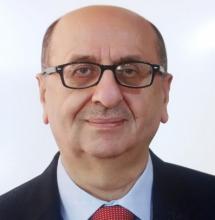You are here
Jordanian drama... the unused soft power
Dec 29,2024 - Last updated at Dec 29,2024
From time to time, discussions arise about Jordanian drama, its challenges, and its decline. This is a story well-known to artists and everyone connected to Jordanian drama for decades.
The regret is profound because Jordanian drama has gone through periods of prosperity and prominence in the Arab world.
Jordan was once a hub for producing works featuring artists from neighbouring countries like Syria, and Jordanian actors were stars in many Arab countries.
The effects of the First Gulf War on Jordanian TV production and its marketing were evident for many years.
However, while that phase has passed, we have yet to overcome issues specific to Jordan.
We recognize and theoretically discuss the importance of art and drama politically, culturally, and in supporting the artistic sector and all professions involved in production.
The problem is clear: the key elements of successful drama are a suitable script, funding, production, marketing, and artistic talent, including actors, directors, and other professionals.
We all remember the exceptional presence of Jordanian art, with writers who created meaningful works that served our causes.
Additionally, Jordanian Bedouin drama has made a lasting impact and is still being aired today.
These productions became a hallmark of Jordanian drama, showcasing noble values, traditions, and high-quality artistic works.
Many of our stars, whether those who have passed away or those still with us, have left a legacy that is still remembered today.
Now, we need practical steps to empower Jordanian artists and the art landscape through funding for productions and authentic Jordanian scripts.
We must avoid attempting to mimic others in ways that neither succeed nor allow us to compete.
We have a niche in which we have excelled both locally and internationally: Jordanian productions in our distinct dialects—whether rural or Bedouin—through which we address Jordanians and present our issues and creativity to others.
These works are still highly sought after by Arab countries, and there are private Jordanian producers making great efforts in Bedouin productions.
Some work independently, while others collaborate with Arab production companies. Yet Jordanian works are well-received, often airing during Ramadan on various satellite channels.
The recent meeting between Prime Minister Jafar Hassan and the Jordanian Artists’ Association president was significant, but what is needed is a plan to revive Jordanian drama in our rural and Bedouin dialects and the language we all speak.
We need a fund to support production, bringing together private sector producers and the government.
We should also leverage the talents of Jordanian drama writers whose work has left a profound and influential mark on Jordan’s artistic history.
Every country presents its art to serve its society and promote itself. Our generations have come to know fictional Syrian characters from shows like Bab Al Hara as heroes and symbols, while we have yet to successfully promote our own leaders, builders of Jordan, and martyrs.
We are not starting from scratch; we have a rich dramatic history, private sector producers, a national television network, a generation of talented artists, and issues worthy of being addressed without needing to abandon our dialects, cities, and countryside. Let us remain hopeful for a better future.














Add new comment